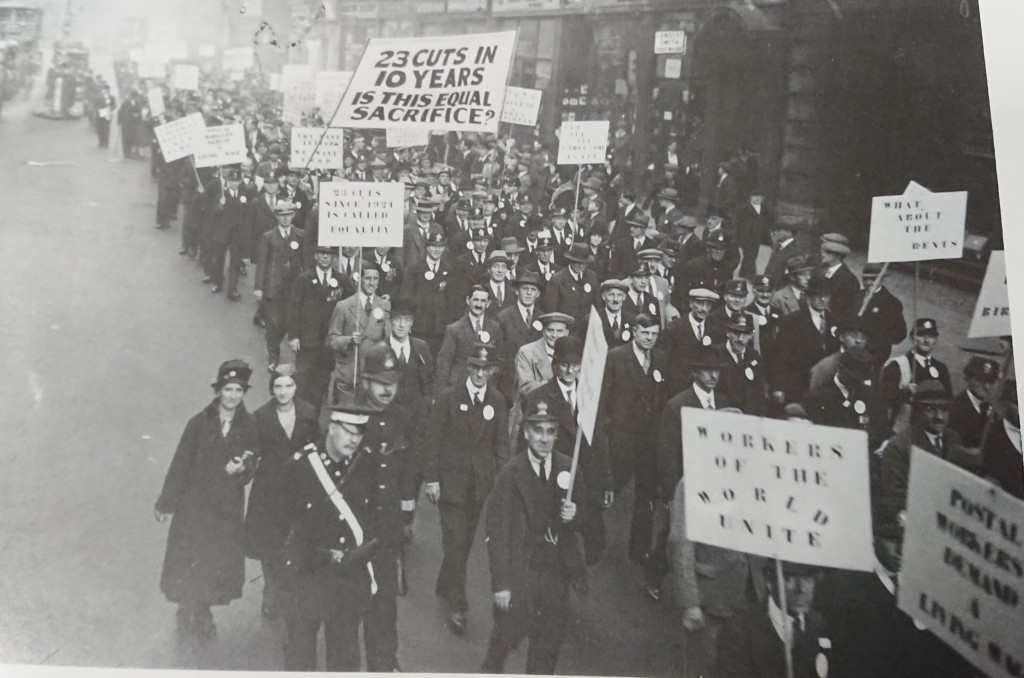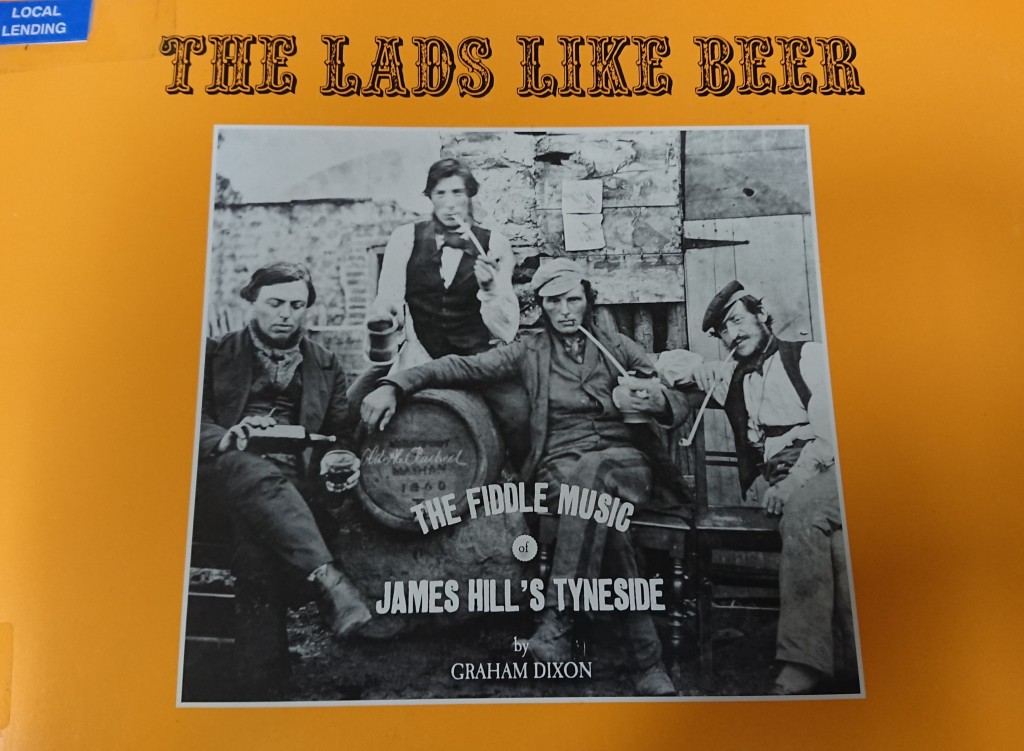Let the quietness of the blog not give the impression that little is happening. Rapid updates, interleafed with some curious images found in Gateshead Archive for your delectation:

- I’ve been awarded £10,000 in HE-BCI funding for a 1-year project in Gateshead, looking at how unpaid carers have been impacted by changes to government spending and the cost-of-living crisis. It’s in partnership with Gateshead Carers, the aim being to co-produce a carers’ charter, videos, report and local event highlighting carers’ overlooked contribution to the basic functioning of people’s lives and communities as social security and local services are cut back. It’ll also feed into a chapter for the next book.
- My third book Spinoza and the Politics of Freedom will be out in paperback in November. With Christmas on its way, it’s the ideal gift for the person who’s got everything, right? Beatitudo guaranteed. (I was reluctant to publicise the hardback as it was forbiddingly expensive. This is now much more reasonable).
- Lots of teaching work over the last year. Some ready to harvest:
Ready now: I rewrote and updated one part of the OU core politics module DD211 Understanding Politics. This included making a video about the history of the climate crisis, and interviews on climate activism/policy with Kate Soper, Bob Ward, Daze Aghaji. I also put together audios/teaching material on neo-liberalism and neo-statism with Paolo Gerbaudo; the Enlightenment, freedom and slavery with Kehinde Andrews and Holly Brewer; the Equality Act with Robin Allen QC and Caroline Derry at the OU; democracy in crisis in Brazil, India and the UK with M. Rajshekhar (author of this great book), and colleagues Britta Weiffen and Richard Heffernan; and on sovereignty with another great colleague, Simon Usherwood. It was a point of honour to write an introductory discussion of Mark Fisher’s concept of ‘capitalism realism’ in one of the chapters.
Ready in autumn 2023: I’ve done lots of work on a new social sciences module, D113 Global Challenges: Social Sciences in Action. As well as writing a couple of weeks, it includes overseeing five films about climate crisis, the legacies of colonialism and enslavement, and digital technology; and later in the module, one about Coventry and development. I was pleased to get some unexpected perspectives and UK locations throughout these films, and they stand up well – in large part due to the great work of the production team at Common Story. - Publications: a smaller crop this year. Two chapters. One in a collection coming out in December, “Do we still not know what a body can do?”, exploring embodiment through Spinoza, Arendt, Guery and Deleule.
- Another on “Climate Anxiety, Fatalism and the Capacity to Act” in a Routledge collection on approaches to autonomy, also out end of the year.
- On the publication front, I’m about to submit two big bits of new work to journals. I’ve got a ridiculous list of things to finish before the end of the year. I also put together an ambitious bid for a collaborative OU project on “The Future of Borders” with a team of great colleagues doing interesting and important work around the UK. Everything in this bullet may well be destined to rejection, but I hope there’ll be something good to report in a few months’ time.
- Little Ice Age: I forgot to link it at the time, but a piece me and Ariel Hessayon wrote for The Conversation was published in The Independent.
- With my colleagues Gerry Mooney and Helen O’Shea, I’ve been an academic consultant for a new BBC/OU co-production called Union, presented by David Olusoga. It tells a different, unexpected, critically-edged story of how the United Kingdom came about. At a moment of fragmentation and contestation of that “union”, brought to mind again with the death of the Queen, it’s a fitting time to be exploring this story. It’s expected to be broadcast sometime next year.
- I guest-edited the annual publication of the School of Social Sciences and Global Studies at the OU. It’s a great showcase of the fine work our staff and students are doing, and a pleasure to be involved. Read it here.
- Finally, David Ridley published a short polemical book called No Consolation: Radical Politics in Terrifying Times. As well as an endorsement, I wrote a short piece about it for a small publication, Post-16 Educator, titled “From Safety to Where?”, available here.
- And finally finally, before I think of even more things, I’m giving a talk on Spinoza’s concept of ingenium (which can refer to mentality, mindset, but also a collective or national “character”) as part of a panel for the Princeton-Bucharest Seminar in Early Modern Philosophy on 15 November. It’s online, free, and at 6.30 UK time.
*

I bumped into someone the other day who I hadn’t seen in some years. The last they’d read of me was Island Story, which had come out in 2016 and then generated some buzz the year after with an Orwell nomination. He wondered why I had not written more travelogues. What had happened?
Back in the latter part of 2016 I had in mind writing a book about Ireland. I have family connections there and know some of the history. It would’ve been called Tara’s Hill or something like that, the Hill of Tara being the place where the Irish kings used to be crowned and a site of mythological significance. Sounds a little pompous but the point would’ve been to play and skew established narratives like Island Story did (David Cameron’s favourite book, apparently).
But I remember being up in Donegal Town for a few days for a family gathering. It was interesting, strange – visiting the ruined two-room cottage walls where my Grandma Bridie and her thirteen-or-so siblings once lived, a site of pain, then a staged photo, remarkable that in the space of a generation her children and grandchildren were now living in unimaginably improved circumstances. A lot you can work on with that. And then, as ever, a lot of heavy drinking in the various bars, laughter and singing along to guitars, and later, fuzzy heads and leathery tongues.
Over that trip I kept thinking: how on Earth can a single visit capture the situation, lives and communities in a place? Perhaps through some luck, but as often through lending the narrative to just one small aspect, often a more familiar aspect (e.g. deindustrialisation in the North, or, if it were about Donegal, something to do with the famine or Troubles maybe, perhaps a final section on the legacies of the “Celtic tiger”).
And there’s nothing wrong with that – far more is covered, and the material is approached with the same unformed mind as the reader – but it is limited too. Far better to do dedicated work over days, weeks, months, walking the contours of a place, having conversations again and again with the same people, with different people, drawing out stories, building trust, allowing them space to shape the stories told. Recognising too that community isn’t the same as place, that while some communities or representatives lay claim to place, others are on the margins.
That said, it would still be a good book. But other factors come into play too. It’s not possible to do that kind of work and teach full-time. Or be an attentive and decent partner. It can be done cheaply, that kind of travel writing, but still some savings are needed to cover lost earnings (Island Story could only have been written because I was receiving a condition-free PhD studentship of around 16k per year while in a social housing tenancy). And above all, why do the same thing over and again. Life is bitterly short. If I had the chance, I’d want to live a thousand different lives as well as my own, not be pigeonholed into the same.
Anyway, this line of thinking has shaped the new work, which is quite different in nature to anything that’s gone before. There’s not much point saying more about it – let it be judged once it’s finished, which will be several years away. But in a time of climate crisis and 1930s-level inequalities, at a time of unprecedented crises in care, broadly conceived, I think it’s unethical to rehash the same kinds of cultural and political writing and ideas. We’re in a new kind of water.
Leave a comment